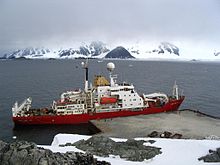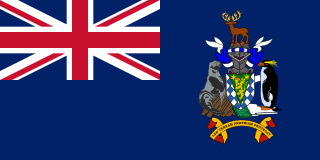
South Georgia and the South Sandwich Islands (SGSSI) is a British Overseas Territory in the southern Atlantic Ocean. It is a remote and inhospitable collection of islands, consisting of South Georgia and a chain of smaller islands known as the South Sandwich Islands. South Georgia is 165 kilometres (103 mi) long and 35 kilometres (22 mi) wide and is by far the largest island in the territory. The South Sandwich Islands lie about 700 kilometres (430 mi) southeast of South Georgia. The territory's total land area is 3,903 km2 (1,507 sq mi). The Falkland Islands are about 1,300 kilometres (810 mi) west from its nearest point.
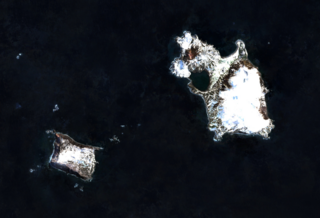
Vindication Island is a small uninhabited island of the Candlemas Islands in the South Sandwich Islands. It is one of about a dozen islands that make up the South Sandwich island arc, a chain of volcanoes in the Southern Ocean that was discovered in 1775 by James Cook. The volcanism is caused by the subduction of the South American Plate beneath the Sandwich Plate.

The Byrd Polar and Climate Research Center (BPCRC) is a polar, alpine, and climate research center at Ohio State University founded in 1960.

The Scott Polar Research Institute (SPRI) is a centre for research into the polar regions and glaciology worldwide. It is a sub-department of the Department of Geography in the University of Cambridge, located on Lensfield Road in the south of Cambridge.

James William Slessor Marr was a Scottish marine biologist and polar explorer. He was leader of the World War 2 British Antarctic Expedition Operation Tabarin during its first year, 1943–1945.

The subantarctic zone is a region in the Southern Hemisphere, located immediately north of the Antarctic region. This translates roughly to a latitude of between 46° and 60° south of the Equator. The subantarctic region includes many islands in the southern parts of the Atlantic, Indian, and Pacific oceans, especially those situated north of the Antarctic Convergence. Subantarctic glaciers are, by definition, located on islands within the subantarctic region. All glaciers located on the continent of Antarctica are by definition considered to be Antarctic glaciers.
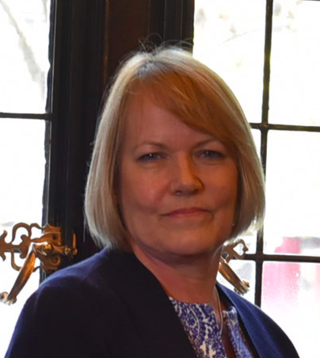
Professor Dame Jane Elizabeth Francis, is the Director of the British Antarctic Survey. She previously worked as Professor of Palaeoclimatology at the University of Leeds where she also was Dean of the Faculty of Environment. In 2002 she was the fourth woman to receive the Polar Medal for outstanding contribution to British polar research. She is currently the Chancellor of the University of Leeds.

Antarctica is Earth's southernmost and least-populated continent. Situated almost entirely south of the Antarctic Circle and surrounded by the Southern Ocean, it contains the geographic South Pole. Antarctica is the fifth-largest continent, being about 40% larger than Europe, and has an area of 14,200,000 km2 (5,500,000 sq mi). Most of Antarctica is covered by the Antarctic ice sheet, with an average thickness of 1.9 km (1.2 mi).

RRS Shackleton was a Royal Research Ship operated by the British scientific research organisations the Falkland Islands Dependencies Survey (FIDS), British Antarctic Survey (BAS) and Natural Environment Research Council (NERC) in the Antarctic from 1955 to 1983. She was subsequently operated as a seismic survey vessel under the names Geotek Beta, Profiler and finally Sea Profiler before being scrapped in 2011.
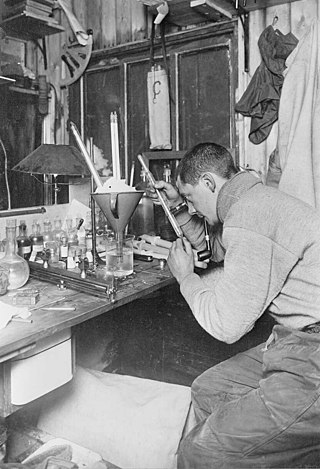
Edward William Nelson (1883–1923) was a British marine biologist and polar explorer. Educated at Clifton College, Tonbridge School and Cambridge University, he was independently wealthy. He worked at the Marine Biological Association of the United Kingdom (MBA) in Plymouth and was member of the 1910–1913 British Antarctic Expedition. In association with E. J. Allen, he developed a simple method for culturing phytoplankton.
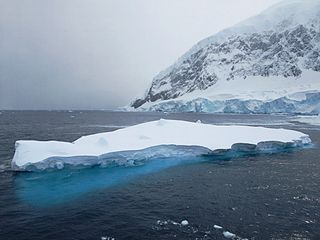
Andvord Bay is a bay-like fjord, 9 nautical miles (17 km) long and 3 nautical miles (6 km) wide, which lies between Beneden Head and Duthiers Point along the west coast of Graham Land.
Ferrigno Ice Stream is an ice Stream more than 15 nautical miles (28 km) long flowing into Eltanin Bay southwest of Wirth Peninsula, Antarctica. It was named by the Advisory Committee on Antarctic Names after Jane G. Ferrigno of the United States Geological Survey (USGS). Ferrigno has been a specialist for some decades from the 1970s in the use of satellite imagery for glacier studies and map compilation, co-leader of the USGS team that compiled the 1:5,000,000-scale radiometer maps of Antarctica, and task leader of the team that is compiling 25 glaciological and coastal-change maps of Antarctica.

Peter John Barrett is a New Zealand geologist who came to prominence after discovering the first tetrapod fossils in Antarctica in 1967.

In-Young Ahn is a South Korean scientist. She is known for being the first South Korean woman to visit Antarctica and the first Asian woman to become an Antarctic station leader. She is a benthic ecologist and is currently working as a principal research scientist for the Korea Polar Research Institute.
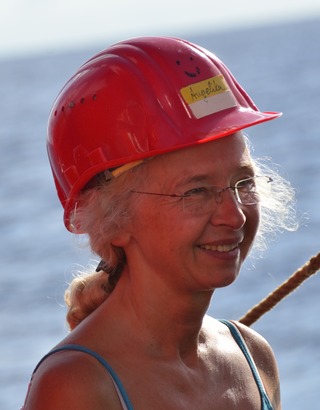
Angelika Brandt is the world leader in Antarctic deep-sea biodiversity and has developed, organised and led several oceanographic expeditions to Antarctica, notably the series of ANDEEP cruises, which have contributed significantly to Antarctica and deep-sea biology. Brandt was the senior scientist of ANDEEP which was devoted entirely to benthic research in the Antarctic abyss.
Carlota Escutia Dotti is a Spanish geologist, best known for her work on the geologic evolution of Antarctica and the global role of the Antarctic ice cap. Escutia is based at the Instituto Andaluz de Ciencias de la Tierra, Universidad de Granada and the High Council for Scientific Research (CSIC).

Amy Leventer is an American Antarctic researcher specialising in micropaleontology, with specific research interests in marine geology, marine biology, and climate change. Leventer has made over a dozen journeys to the Antarctic, which began at the age of 24 and led to the pursuit of her PhD.
Joanne S. "Jo" Johnson is a geologist and Antarctic scientist, who has worked for British Antarctic Survey (BAS) since 2002. She works in the palaeoenvironments, ice sheets and climate change team and is best known for her work on glacial retreat. She was awarded the Polar medal in 2023. The Johnson Mesa in James Ross Island, Antarctica is named in her honour.
Sally Poncet is an Australian-born scientist and adventurer who has explored and studied the Antarctic region since 1977. Her specialty is birds and she made extensive studies of albatross and their habitats for the British Antarctic Survey. She has written guidebooks on preservation of the flora and fauna of South Georgia and received numerous awards and honors, including the Blue Water Medal, the Fuchs Medal and the Polar Medal for her contributions to understanding the southern polar region.
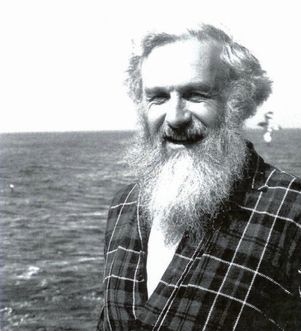
William Nigel Bonner was a British zoologist, Antarctic marine mammal specialist, author and ecologist. The topics of his books and scientific publications included marine animals, reindeer and the ecology of the Antarctic. He headed the Life Sciences Division of the British Antarctic Survey from 1974 to 1986, and served as deputy director from 1986 to 1988. Bonner received the Polar Medal in 1987, in recognition of his work in Antarctica.
